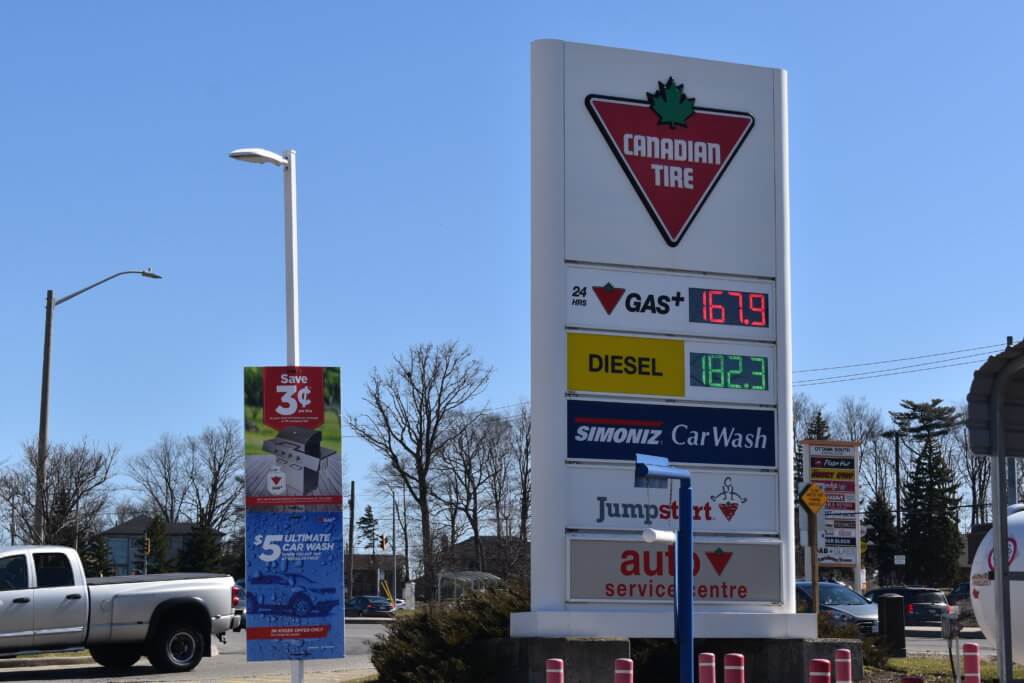Driving by the gas station and seeing the numbers plastered on the big, bright sign out front has been dreadful for the last month or so.
The numbers, if they do go down, don’t seem to stay there for long.
Russia’s war on Ukraine, Ontario lifting COVID-19 restrictions, and the government’s recent increase of Canada’s carbon pricing on April 1, are all contributing factors.
However, as aggravating as it may seem, these high prices on fuel might be exactly what our planet needs.
The fuel that is burned in cars and expelled as carbon dioxide and other chemicals is a primary contributor to the greenhouse gasses that are affecting our planet and climate.
According to a 2015 report by Climate Action WR, 49 per cent of emissions in Waterloo Region came from transportation and fuel consumption.
“The rate of car ownership doubled the rate of population growth from 2010 to 2015, so for every new person to the Region, we added two vehicles. So, our car dependency was increasing,” Tova Davidson, an Executive Director at Sustainable Waterloo Region said.

The COVID-19 pandemic temporarily slowed the need for transportation, especially passenger vehicles, but now that people are going back to in-person school, work and other activities, more and more cars will be on the road.
Many people are dependent on passenger vehicles, with good reason. They’re easy and convenient, and when I am driving to run errands or go to class, it’s hard not to think twice about it.
However, with gas prices rising the way they are, there is hope that more people will consider turning to modes of transportation that are safer for the environment, like public transit, electric vehicles, carpooling, or even bikes.
The more people who are out of their gas-powered vehicles, the better it is overall for our planet.
“In a number of communities, a big challenge is how our communities are structured, so the way that the built form and the transportation infrastructure are laid out, is not necessarily conducive to trying to get folks to uptake a more active transportation-geared lifestyle,” said Devon Calder, the plan manager at Climate Action WR.
The Ontario government recently introduced a plan to temporarily reduce the gas tax by 5.7 cents per litre and the fuel tax by 5.3 cents per litre starting July 1, if passed. While this would lessen the burden on our wallets, there should be more encouragement for Canadians to scrap fuel cars and switch to electric vehicles.
“There’s currently, nation-wide a lack of electric vehicle or zero-emission vehicle infrastructure to support … to meet the mode shift targets that we’re looking for,” Calder said.
Next time you’re driving by the gas station and get frustrated at the numbers, think about the benefit it may have on our beloved planet.

